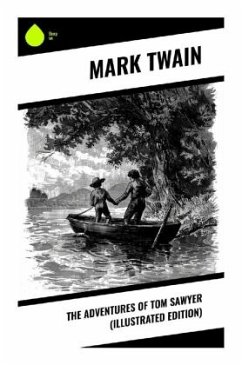
History of Tom Jones, a Foundling
Versandkostenfrei!
Versandfertig in 6-10 Tagen
27,80 €
inkl. MwSt.

PAYBACK Punkte
0 °P sammeln!
In "History of Tom Jones, a Foundling," Henry Fielding masterfully weaves a picaresque narrative that follows the adventures of its titular character, Tom Jones, an amiable yet illegitimate lad raised in rural England. Juggling humor and moral complexity, Fielding employs a rich, conversational prose style that invites readers into a world bustling with vivid characters and satirical commentary on contemporary society. Set against the backdrop of 18th-century England, the novel explores themes of social class, identity, and the quest for love, revealing the intricate tapestry of human experien...
In "History of Tom Jones, a Foundling," Henry Fielding masterfully weaves a picaresque narrative that follows the adventures of its titular character, Tom Jones, an amiable yet illegitimate lad raised in rural England. Juggling humor and moral complexity, Fielding employs a rich, conversational prose style that invites readers into a world bustling with vivid characters and satirical commentary on contemporary society. Set against the backdrop of 18th-century England, the novel explores themes of social class, identity, and the quest for love, revealing the intricate tapestry of human experience through a blend of comic misadventures and philosophical reflections. Fielding, a pioneer of the modern novel and a keen observer of human nature, drew inspiration from his own tumultuous life experiences and the societal norms of his time. As a playwright and novelist, he often confronted moral hypocrisy and the injustice inherent in the class system. His background in law and literature, alongside his awareness of the intricacies of social interaction, shaped his depiction of Tom Jones, offering keen insights into the nature of virtue and vice. This seminal work is not only a rich source of entertainment but also an essential exploration of human character and societal critique. Readers interested in early English literature or the evolution of the novel will find Fielding's magnum opus a rewarding and enlightening experience, marking a cornerstone in the development of narrative form and character-driven storytelling.












